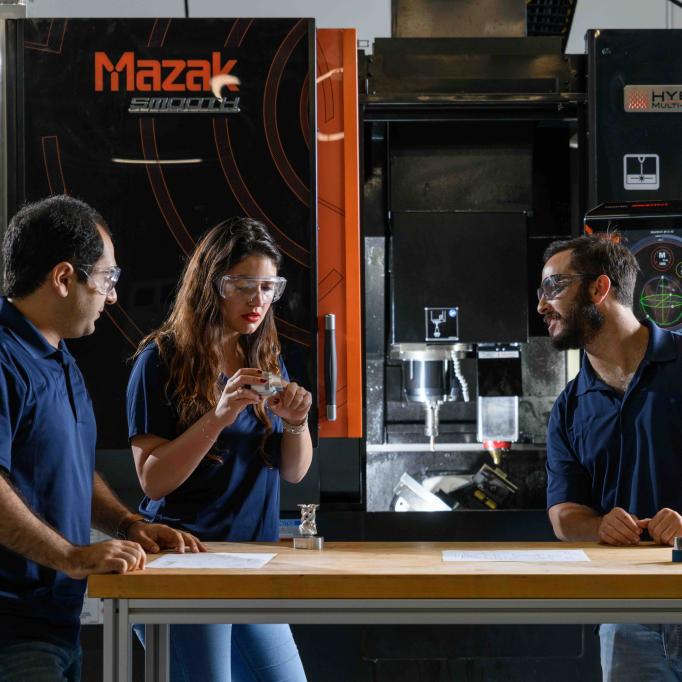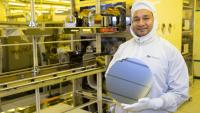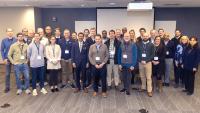Southwest Georgia Students Put New Manufacturing Skills to the Test in Tri‑District Race
6 min read
Students from three Southwest Georgia high schools put their engineering skills to the test at the Advanced Manufacturing Program’s first tri‑district race, showcasing custom cars they designed and built. With strong support from educators, industry partners, and local leaders, the program is fostering homegrown technical talent. As AMP expands to six schools, communities are beginning to imagine new possibilities for their future workforce.
Smaller, Smarter, Speedier, Stacked: Engineering Next-Gen Computing
2 min read
At Georgia Tech, engineers are finding new ways to shrink transistors, make systems more efficient, and design better computers to power technologies not yet imagined.
Georgia Tech Computing Hosts Venture Capital Summit to Push Research Beyond the Lab
4 min read
The College of Computing is working to connect student and faculty entrepreneurs with early-development startup support.
Is the Whole Universe Just a Simulation?
5 min read
How do you know anything is real? Some things you can see directly, like your fingers. Other things, like your chin, you need a mirror or a camera to see.
Yuanzhi Tang Named Executive Director of the Strategic Energy Institute
3 min read
Georgia Tech has appointed Yuanzhi Tang as executive director of the Strategic Energy Institute (SEI), effective Feb. 1.
Georgia Tech Researchers Commercialize New Technology for Faster Water and Environmental Monitoring- Skopii
5 min read
Through the startup Skopii, Georgia Tech researchers are translating lab-developed imaging and AI technology into a market-ready platform for faster, more accessible microbial monitoring.
Scheller Business Insights: How Data Can Transform Museum Experiences
1 min read
Abhishek Deshmane, assistant professor of operations management, partnered with the Van Gogh Museum to show how data-driven layout design can enhance visitor engagement












